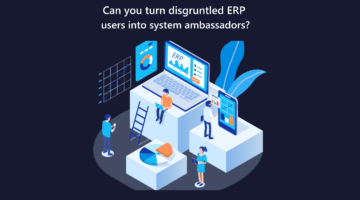When I was studying Marketing at Melbourne University, I initially had difficulty solving complex business problems until a colleague, Clive Hall, provided me with a practical approach that moved my results from Cs to As and has served me well ever since. It comprises a statement of the problem; gathering of facts and evidence; identification or creation of alternative solutions; evaluation of those solutions; and a recommendation for action. Forty years later it still seems like a good approach.
But what if I did not have all the facts? Business is so complex. Who could foresee the impact of adding a new role to an organisation – or even a new employee in an existing one; adding a new product or service; or implementing a new ERP system? It is quite unlikely that solutions devised by one person and handed down for others to use will be optimal – people resist working with new ways that they have not been involved in developing. We pay most attention to what we measure and often miss other relevant data. As Paul Simon sang, “A man hears what he wants to hear and disregards the rest“. So a single person will not have all the facts.
What if I did not have the ingenuity to imagine all possible solutions? My ability is nurtured by my experiences and my practice in solving similar problems. I will not have all the ideas.
My alternative to one person analyzing the problem and recommending a preferred solution is experimentation. Firstly, involve lots of people in the process. Always ask “Who else can contribute?” Then trial lots of solutions. Test to see which ones work. Do not wait to find the one perfect solution. Use the better ones now. Iterate. Be happy to use solutions that work for now, but always be ready to replace them with a better ones.
This is the process used by nature. Creatures absorb information from their environment and respond to it. They are constantly changing, assessing the new situation and adapting to it. This is also the process of the free market. Entrepreneurs assess the response of consumers to their products and services – including price, delivery method, warranties etc. – and modify them to make them more appealing.
So while Clive’s format serves us well for most problems, for really complex ones “We need a constantly expanding array of data, views and interpretations if we are to make wise sense of the world. We need to include more and more eyes“. (Margaret Wheatley, Leadership and the New Science). Moreover, we need to trial alternative solutions and to be forever replacing existing processes with improved ones. That is the way to growth and success.







